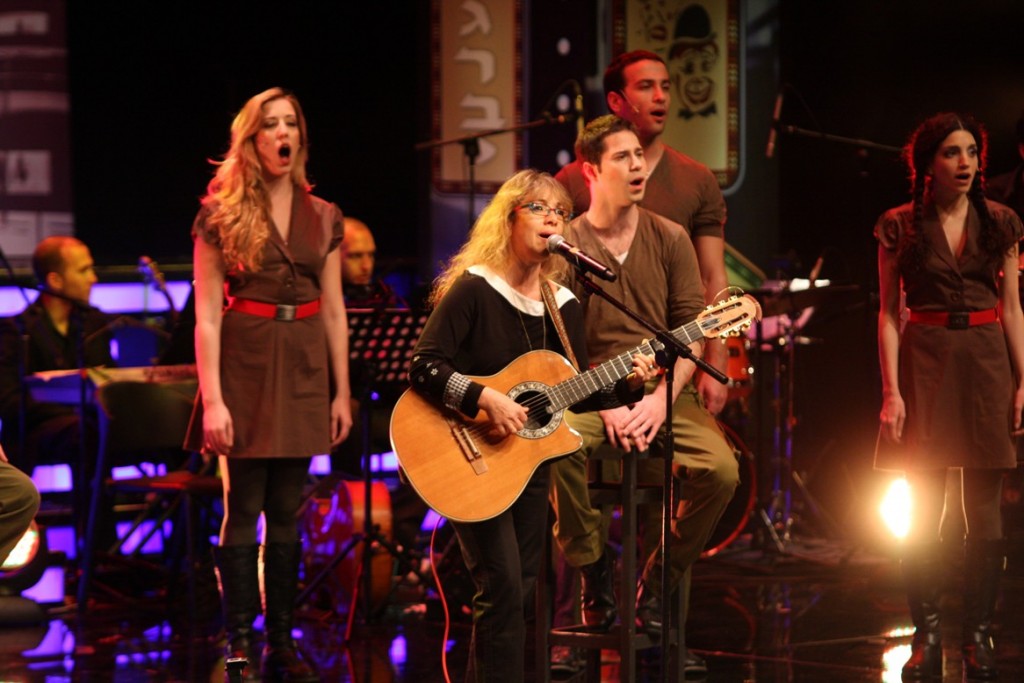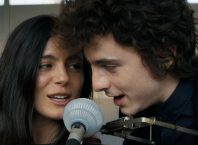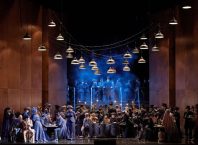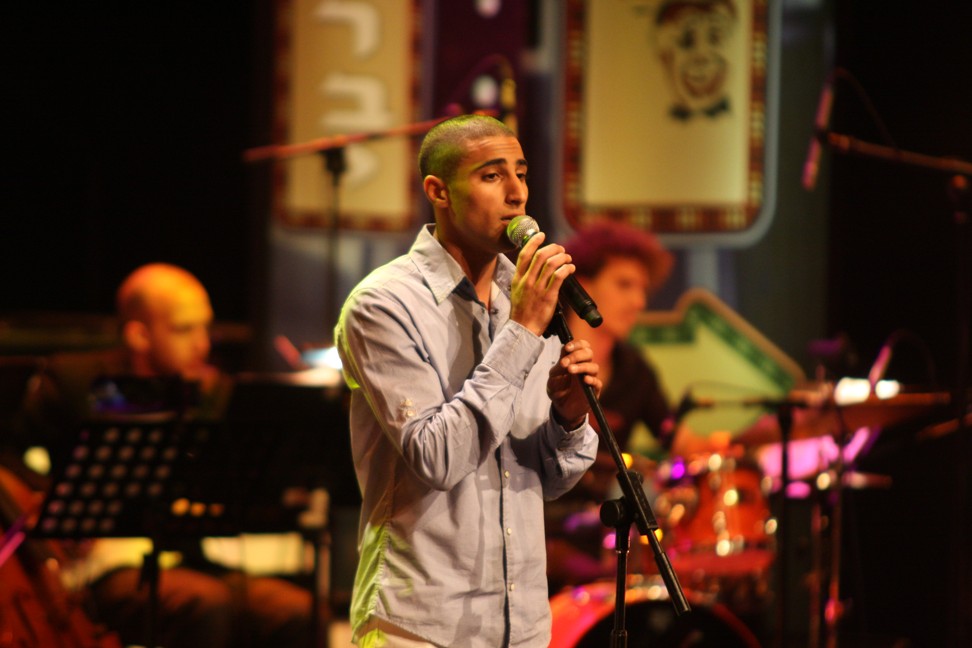
The honey-toned arabesques of Boaz Mauda’s voice welcomed the audience gathered on Friday afternoon at the Cameri Theatre to pay tribute to Yair Rosenblum. Mauda sang “Come, Bride” which Rosenblum composed to a poem by Avraham Shlonsky, on the occasion of the poet’s 71st birthday. Composing music to poems, liturgical texts and lyrics written by some of the most popular writers of his time, Rosenblum composed 1,200 songs, an amazing body of work whose rhythm is the heartbeat of Israeli culture and history.
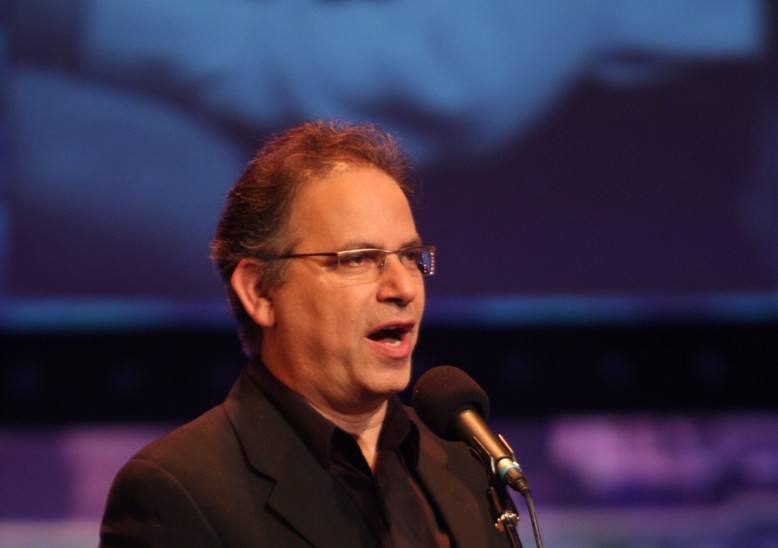
Natan Datner was the guide on this musical journey, telling the story of Rosenblum’s life and career with warmth and humor.
The presence of many of the original performers added to the excitement of the concert. Dorit Reuveni, who performed “Around the Bonfire” (lyrics: Natan Alterman) recalled that the song was intended for Gidi Gov, to sing at the 30th anniversary of the Palmach in 1971 which caused an uproar in the troupe. Gov left the troupe, Reuveni got the solo, and in 1977 Avi Nesher immortalized the story in his film “The Troupe.”
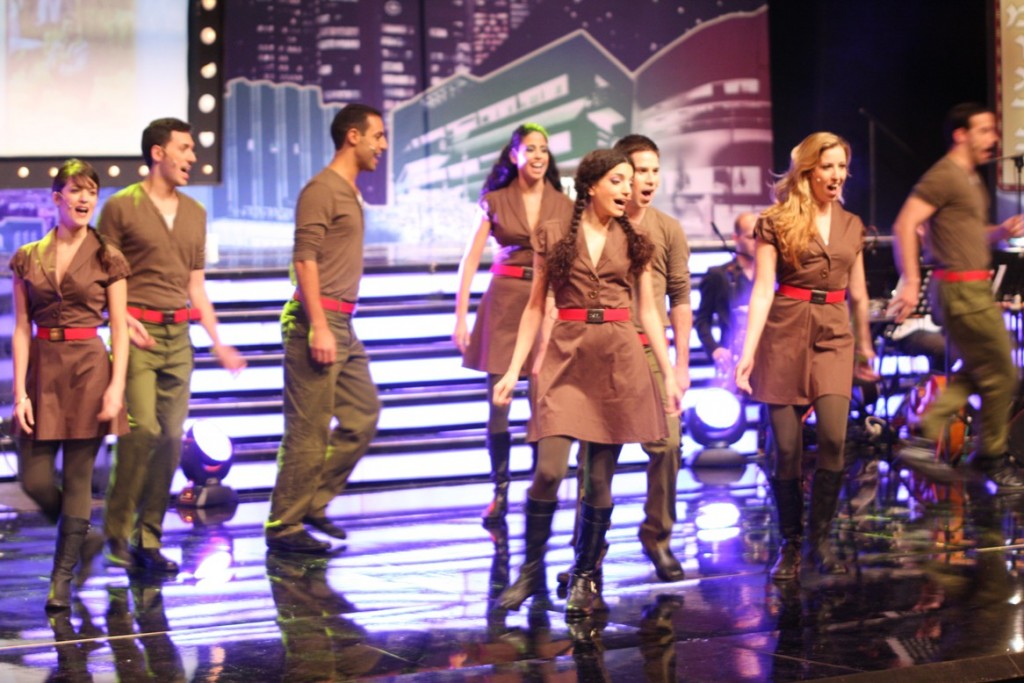
For those who missed the heyday of the military ensembles, the Cameri ensemble of young performers played the part with all the energy, enthusiasm and innocence of youth. Although with Yuval Caspin’s military – inspired costumes, they were much better dressed.
“Rosenblum brought new life to the military ensembles,” said Datner, “moving the music in the direction of rock and pop.” This was not always met with enthusiasm by the music establishment. Datner introduced a video clip of songwriter Naomi Shemer visiting a Nahal Troupe rehearsal of her song. Suffice to say, Shemer did not approve and expressed her criticism, saying, “I wanted it legato…this is a lot of noise for me,” while the young and beautiful singer Yardena Arazi can be seen looking dismayed. A short segment of this video can be glimpsed in the clip below:
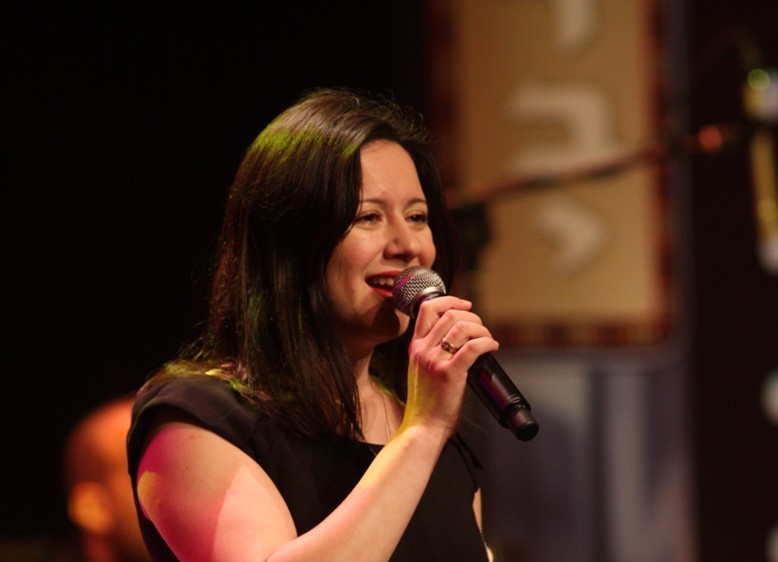
Cameri actress Ola Schur-Selektar brought the power and expressive beauty of her voice to the song “Within” (lyrics: Yael Tevet). “I am water flowing towards you/I am a singing bird/and without you I have no song…” The appreciative audience continued clapping long after she left the stage, perhaps hoping that she would return to sing another song.
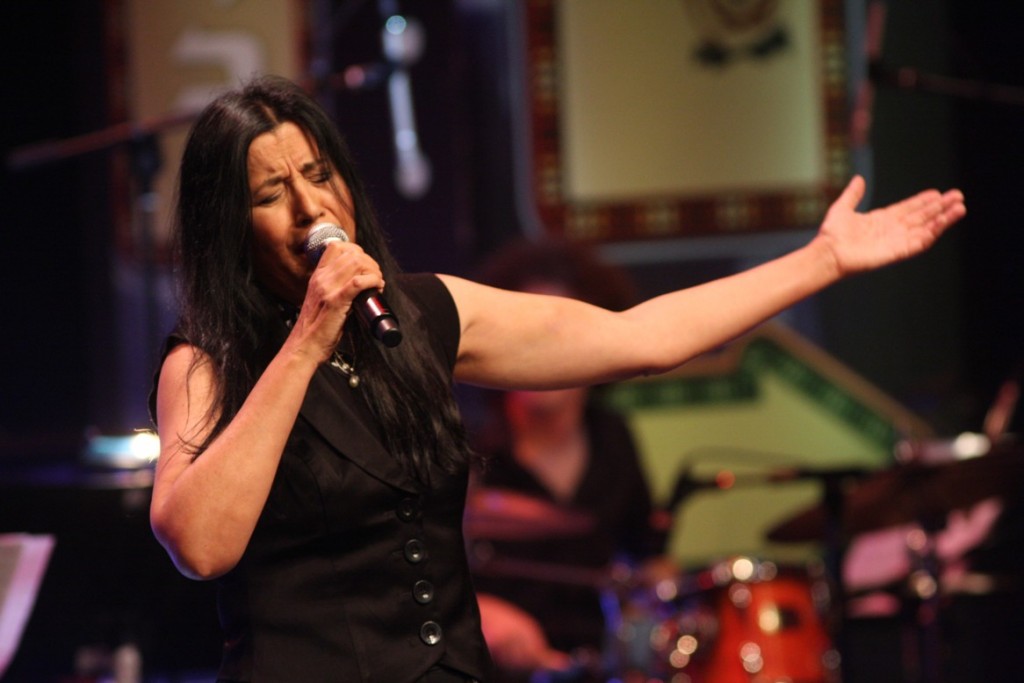
It was an afternoon of one high point after another, as Netanela took the stage to sing “Be My Friend, Be My Brother” (lyrics: Yoram Teharlev), a song which reveals a different aspect of Rosenblum’s work. It is ironic, and perhaps in some sense typically Israeli, that a composer who is so identified with the military ensembles, should also be the one who so eloquently expresses the pain, the loss, and the waste of war.
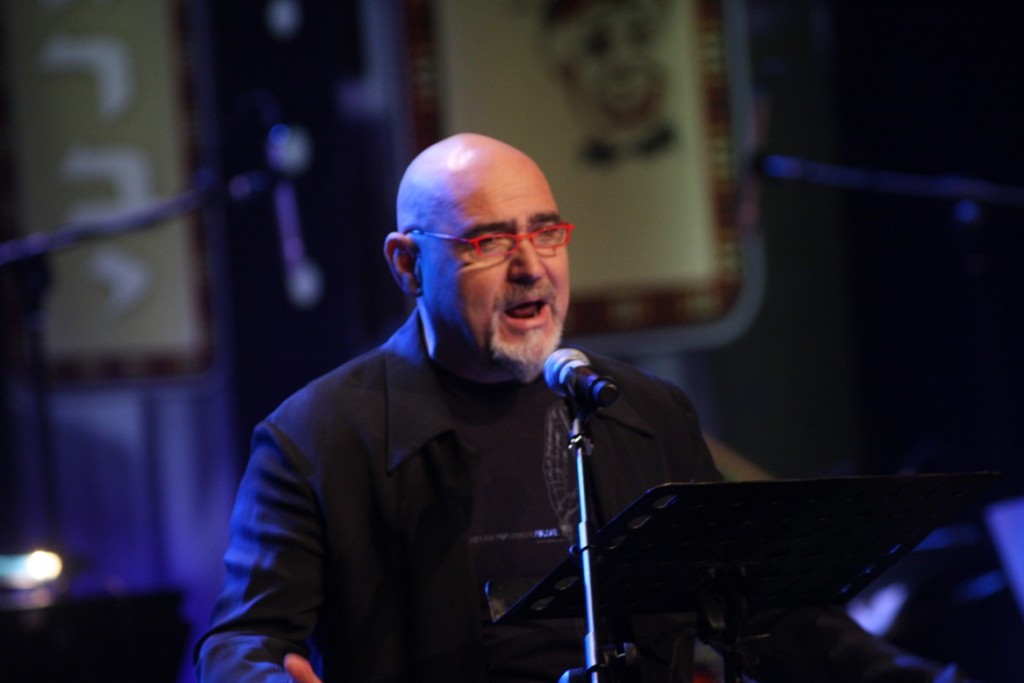
Gabi Sadeh sang “VeNetana Tokef” written to commemorate 11 young men from Kibbutz Beit HaShita who were killed in the Yom Kippur War.
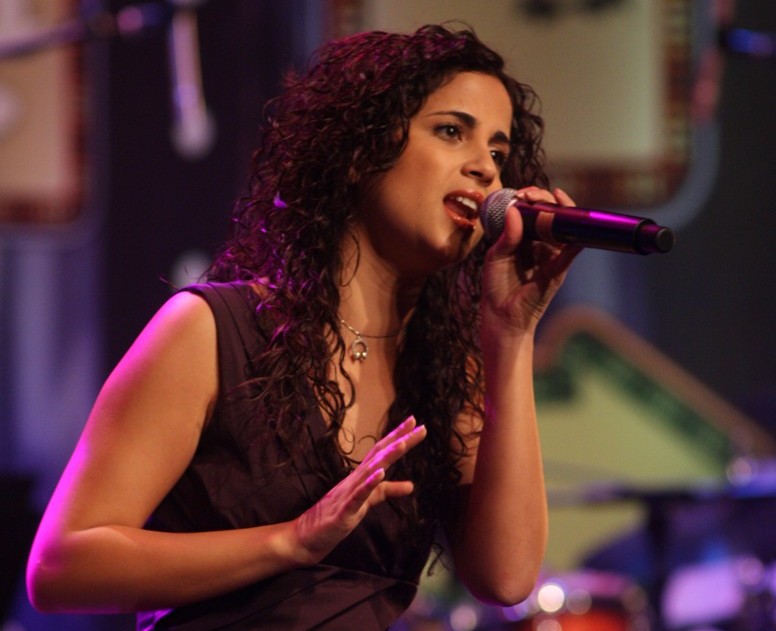
Liel Kolet graced the stage with her lovely voice. Another Israeli cultural legend was remembered as Datner sang Yossi Banai’s “I Sing to Pass the Time,” and the audience clapped along with him. There were smiles everywhere – onstage, in the audience, behind the scenes and even on the stairs…
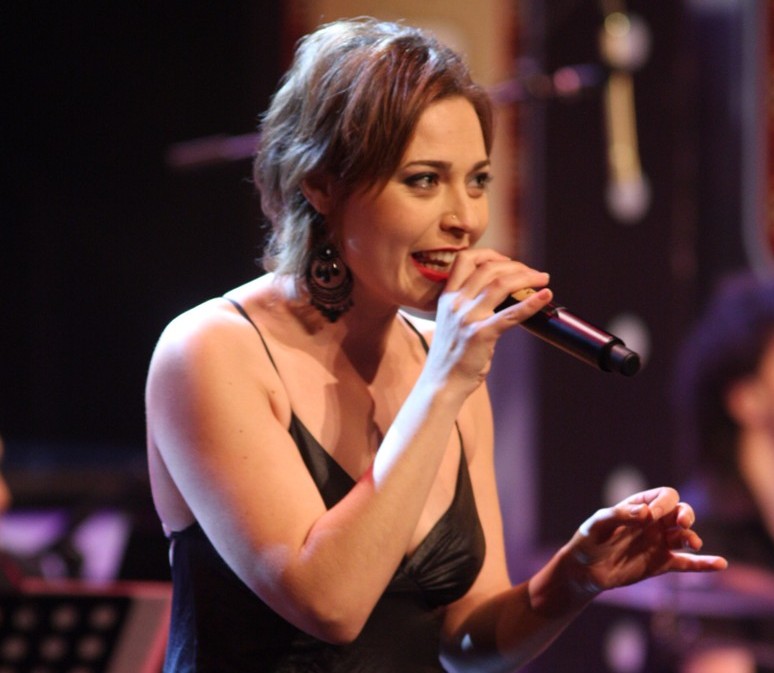
Mira Awad sang “A Song for an Ordinary Day” imbuing it with all the beauty of simplicity, then picked up the tempo for “The Ballad of Hedva and Shlomik.”
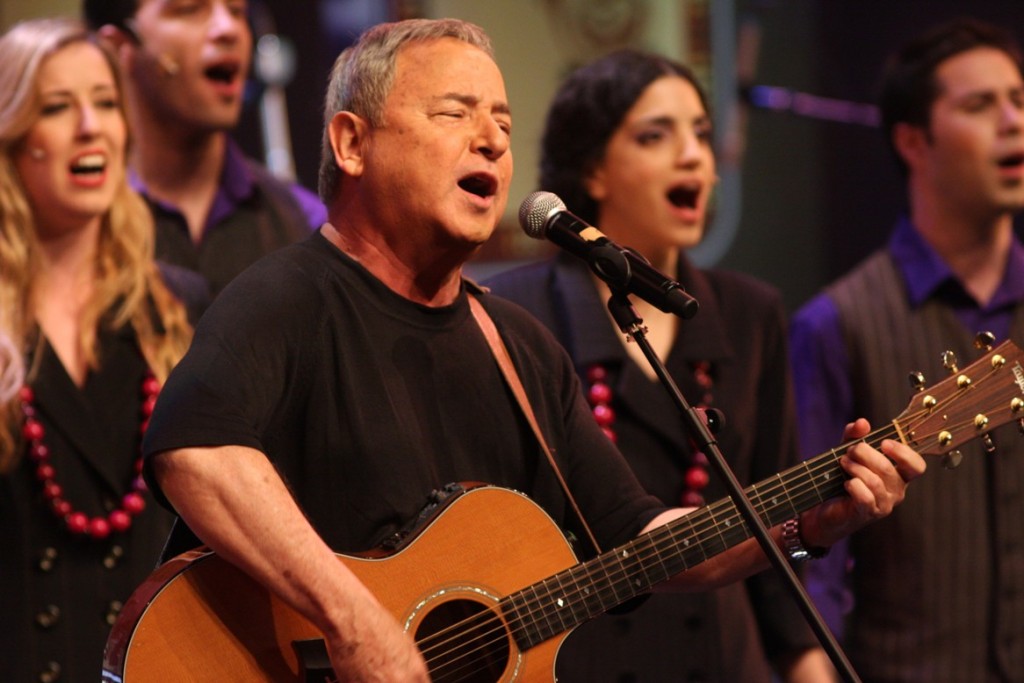
Hearing Hanan Yovel sing “If I was a Pirate,” it was as if time stood still.
The sense of travelling back in time was enhanced by a video segment showing the Naval Ensemble, with a boyish Shlomo Artzi in a striped shirt, and Rivka Zohar in a crisp white uniform, singing “How Shall I Bless” (lyrics: Rachel Shapira).
Then she walked onstage, radiant, to sing in a voice that always seemed to come from another world.
Revealing yet another dimension to Rosenblum’s endless creativity, the afternoon closed with a medley of humorous songs composed for HaGashash HaHiver (literally, in Hebrew: the pale trackers, known as HaGashashim, the Trackers). These were performed by the talented Avi Grinek, Dvid Bendak and Tomer Sharon.
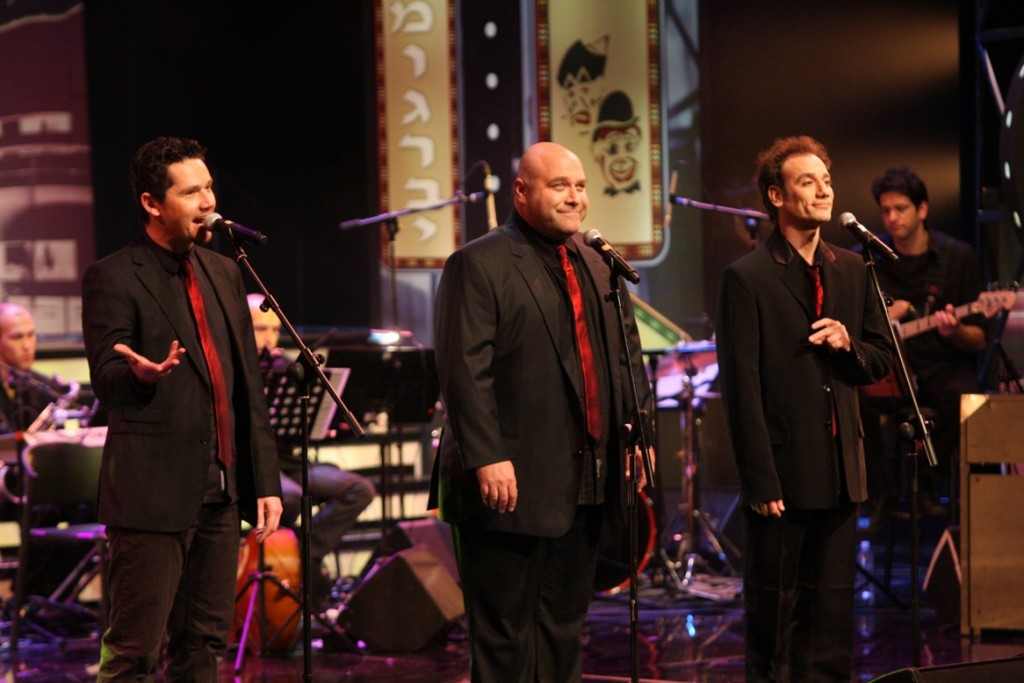
A true celebration in every sense of the word, the concert was produced by Avi Gez, researched by Rami Samo, texts written by Adva Bola, filmed and broadcast by Channel 23.
AYELET DEKEL

